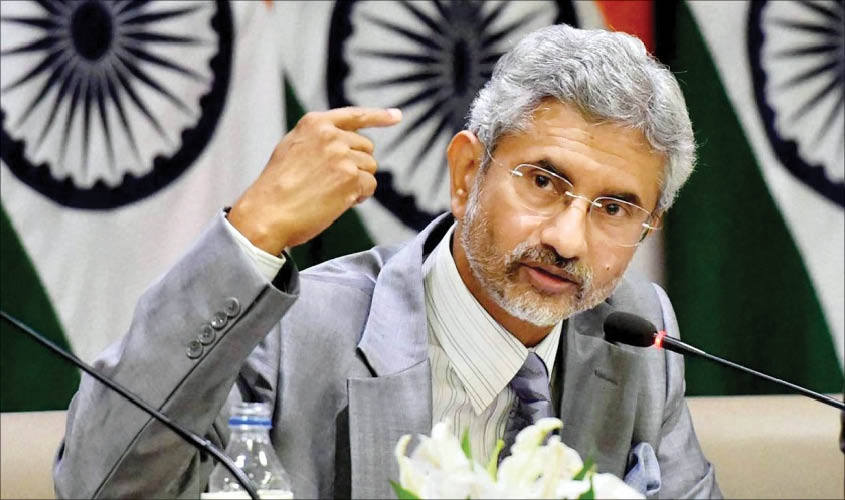The External Affairs Minister of India said that India would have ‘physical jurisdiction’ over PoK.
External Affairs Minister S. Jaishankar is one of the stars of the Indian Foreign Service. He had an outstanding career, combines sound judgement with finesse, prudence, discernment, industry and diplomatic tactics. His other asset is not going into a flap. One is not born with such qualities. They are laboriously acquired.
Jaishankar is 64 years of age. He joined the IFS in 1972, retiring two years ago. Prime Minister Modi could not have chosen a better man to head the Ministry of External Affairs. I have known Jaishankar for many years and have regard for his exceptional abilities.
His press conference of Tuesday, 17 September, mystified me. He enunciated our Kashmir policy with clarity and skill. Pakistan’s observations on the abrogation of Article 370 were highly objectionable and irrelevant. The question of going back on this decision did not arise. I myself hold a similar view. Article 370 should have been done away with long ago. He did well to emphasise that Pakistan was not a “normal” nation. It was the home of terrorism and its exporter. It had to dismantle its terrorism infrastructure.
Now I come to PoK. Newspapers had reported the statements of the Vice-President, the Home Minister and the Defence Minister on India’s future policy on PoK. One Minister of State suggested freeing PoK.
When the External Affairs Minister of India says that India will have “physical jurisdiction” over PoK, it inevitably attracts world attention, more so when the General Assembly of the UN is to meet for its annual three-month session. I have no doubt the External Affairs Minister would have got the clearance of the Cabinet Committee on Security for using the terminology he allegedly used.
I have participated in numerous meetings of Cabinet Committee on Security and know how it functioned. Its function might have changed under the present government.
Several doubts surface. How is this laudable objective to be achieved? Is war a realistic option? Will China sit quiet? What about the United States? Pakistan is not only a trusted ally but also a vital part of the US’ geopolitical policies. What will be the reaction of the other two Permanent Members of the Security Council, UK and France, the European Union and the rest of the world? Pakistan at the moment is internationally isolated. On “physical jurisdiction” over PoK, it will gather support.
Imran Khan will, most likely bring the matter before the General Assembly when he addresses it in five or six days. Will we exercise our right of reply or we will follow the path of giving the benign neglect dose.
For many years the world has not spared anytime for taking up Kashmir. Interest will be immediately aroused if there is the remotest indication of our intervening militarily in PoK. We must also remember that Pakistan is not a responsible nuclear country.
***
In the next ten days, two momentous events will take place. On 1 October, the People’s Republic of China will celebrate the 70th anniversary of its birth. On 1 October 1949, Mao Tse Tung announced that China had stood up. If Mao Tse Tung were to land in Peking today he would not recognise the place—neither would I. I first set foot in Peking in July 1956. Mud houses were still occupied by hundreds of thousands of citizens of the city. The road leading to my house at Tung Sung Pu hutung was unpaved. Everyone was dressed in blue suits. Not a single luxury item could be bought. Every week a member of the staff used to go to Hong Kong to collect the diplomatic bag and bring items not available in Peking. Only one second hand English bookshop existed. I bought the English translation, several Chinese classics, including Water Margin, translated from Chinese by the 1938 Nobel Prize Winner, Pearl S. Buck. Her parents were American missionaries in China. Pearl Buck spent her childhood and youth in China. Her most famous novel was, Good Earth. I got to know her in New York. I introduced M.F. Husain to her. He did a portrait of her in 1963. She was married to John Walsh, the owner of the John Day, which published Nehru’s autobiography and my memorial tribute to Nehru. The Legacy of Nehru, on his first death anniversary.

